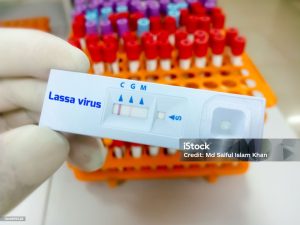

Nkasiobi Oluikpe
Chimimba David Phiri, the FAO Sub-regional Coordinator for Eastern Africa and Representative to the African Union and United Nations Economic Commission for Africa, has advised member states of the AU on the need to prioritise food security-related policies and programmes in conflict prone countries.

This, he said, will help to build resilience by helping people and countries cope with and recover from conflicts, while at the same time, contributing to preventing conflicts and supporting economic development more broadly.
Phri, who made the assertion during a regional symposium by the AU Commission in Addis Ababa, which was aimed at fostering dialogue on the need for the promotion and protection of human rights to food and food security in Africa, was represented by Ade Freeman, Regional Programme Lead at the FAO Regional Office for Africa.
He explained that the right to food is the right to have regular, permanent and unrestricted access to quantitative and qualitative food that ensures a productive life.
“Generally understood as the right to feed oneself in dignity, the right to adequate food is a long-standing international human right to which many countries have committed.”
He further added that conflicts drive food insecurity and malnutrition, and food insecurity and hunger drive conflicts, forming a vicious circle that is difficult to break. Approximately 60 per cent of the world’s hungry people, he said, live in countries experiencing conflict.
Ambassador Bankole Adeoye, AU Commissioner for Political Affairs, Peace and Security, represented by Ambassador Salah Hammad, mentioned that the ongoing war in Ukraine uncovered the reality of the African food system, which is poor and weak, despite the vast fertile land and water that are available on the continent.
He explained further that the impact of climate change has exposed and aggravated the weakness and vulnerabilities of Africa’s food and health systems.
“These current trends call for urgent actions to ensure that all Africans’ right to food is guaranteed to unlock their full potential to contribute effectively to the realization of a prosperous and peaceful Africa.”
The symposium, which was titled: Nexus between Human Rights, Food Security, and Resilience in Africa, deliberated on the relationship between nutrition, food security, and human rights and the roles of the human rights-based approach to food security in Africa as well as the role of parliamentarians in promoting and protecting the rights to food in Africa.
It also dissected the justiciability of the right to food; the follow-up of the implementation of existing legal policy, and judicial frameworks and commitments. Added to this, it contributed to forging commitments for implementing socio-economic rights as a catalyst for realizing food security and building resilience in Africa.
Participants agreed that it is difficult to uphold the right to food if there is no peace and security, and vice versa. And that though legal frameworks and policies at the country level were essential, but that they were not enough, and that complementary actions are critical to filling implementation gaps, with an urgent focus on food security and other related elements, including water security.









